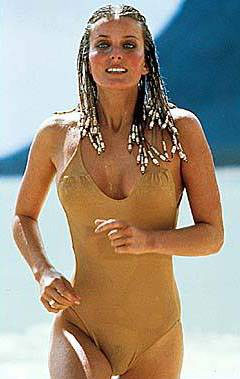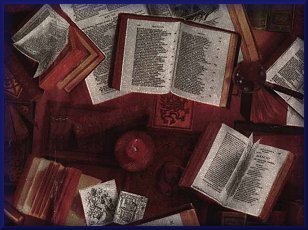A good writer friend of mine at Pan says: "People adore Dexter. He's a serial killer. How can you like him or hope he doesn't get caught? Because he fights his insights and sticks to his code." Dexter is a good example of the hero role turned upside down, or an anti-hero because even though he seems to be a prime example of a bad guy, he has an unshakeable code of conduct.
But what about a good old-fashioned hero?
Clementine Proulx (a nom de plume of one of our excellent Pan Historia writers who is also a published author in the real world) advises: "Readers have to care about your "hero." She doesn't have to be lovable or even likable, but she has to have something that makes them want to invest in her."
I write the historical character of Wyatt Earp. I use the historical record to provide him with the flaws needed to make him a believable human being and not a TV show stereotype. The controversy surrounded Earp supplies me with plenty of ways to show that my hero is not just a nice guy. He was a gambler who consorted with prostitutes, but he was also a fearless lawman who was prepared to crack a few heads along the way. He even arrested a judge. His brother Virgil arrested Wyatt once. That kind of single-minded adherence to duty is both honorable and a flaw. Rigidity is not a likeable character trait.
Back to Clemetine Proulx:
Almost all the best heroes are essentially not so nice people overcoming their not-so-niceness. They do it throughout the story which in Hollywood is a character arc. Really "nice" people or "good" people are rather uninteresting heroes unless thrown into a plot driven story. I think of a Stephen King---The Mist---where the decent dad faces unbelievable situations. A hero is always reluctant at first, has character flaws, but eventually makes the satisfying choice. The more flawed the hero, the more he struggles, the more we care for him...so yes, Dexter could be called an anti-hero (like Hannibal who only eats rude people), but he is still a hero because he can't help who he is, formed by one of worst childhood experiences I can think of, but he struggles against it to do - ultimately - good. Sure we all want to kill bad guys. Actually we all want to kill people in our way. But Dexter follows a code that is essentially the code we all follow...only his is obvious and spelled out.
Clementine really knows what she's talking about. In the collaborative fiction novel FLESH she writes a character that is notable for being everything you don't expect in a heroine. She's old, ugly, pudgy, a fanatic fan of Tom Jones, with few social skills who was overjoyed when her mother was consumed by flesh-eating zombies, but her wit, spunk, and ingenuity gets the reader rooting for her nonetheless. In fact it is her flaws and her history (she was picked on mercilessly in school, had a sad and lonely family life) that causes the reader to love her with a passion.
In the same novel FLESH we have started a new chapter and my personal challenge is to create a hero that is essentially pretty unlikeable and yet, in the end, it is my hope that the readers are rooting for him to succeed. Michael is proud, pompous, prejudiced, and overly rigid in his thinking and actions. He's about to be thrown into a situation where he has to help the very people he's been alienating for years: his neighbors. You can check out my writing for this character here on my writing blog. I would love feedback, as the story progresses, about how well I'm doing at creating a flawed hero that you might hate to love.






 I went grocery shopping last night after work. Exhausted though I was we were completely out of food and I'd gone to work in the morning with a stale croissant from Safeway and Starbucks (possibly the worst supermarket and worst coffee franchise ever) so I was resolute in my desire to fill a shopping cart with a basket of good food from a different food chain. Taking my time I was drawn to the magazine rack as I strolled by leaning heavily on the handle of the cart. People Magazine had put out one of its glossy special editions "
I went grocery shopping last night after work. Exhausted though I was we were completely out of food and I'd gone to work in the morning with a stale croissant from Safeway and Starbucks (possibly the worst supermarket and worst coffee franchise ever) so I was resolute in my desire to fill a shopping cart with a basket of good food from a different food chain. Taking my time I was drawn to the magazine rack as I strolled by leaning heavily on the handle of the cart. People Magazine had put out one of its glossy special editions " Plans are moving ahead for the re-launch of the Pan Press as a division of a small publishing house. We had our first business meeting to discussion the structure of the operation. We have a couple designers ready and primed. My idea is to start with some of the best of the best of
Plans are moving ahead for the re-launch of the Pan Press as a division of a small publishing house. We had our first business meeting to discussion the structure of the operation. We have a couple designers ready and primed. My idea is to start with some of the best of the best of 